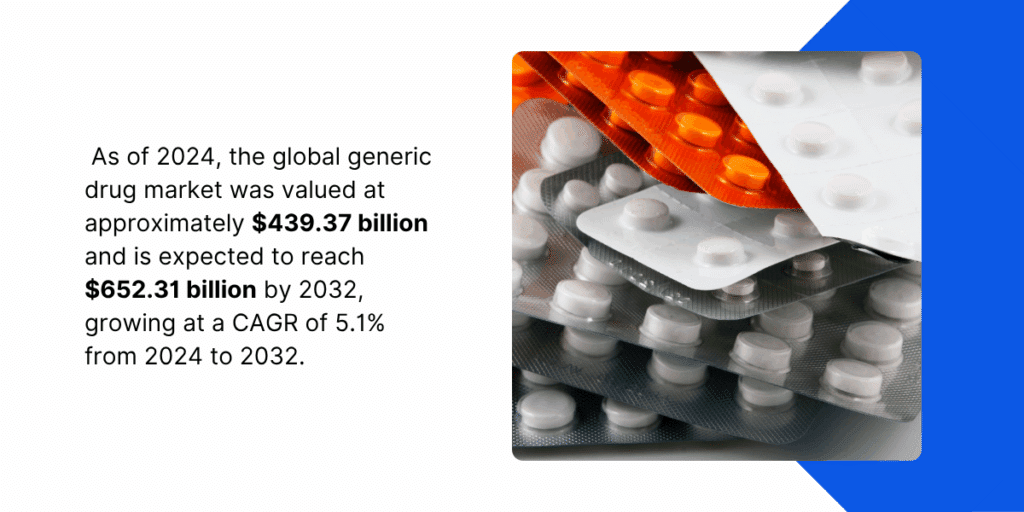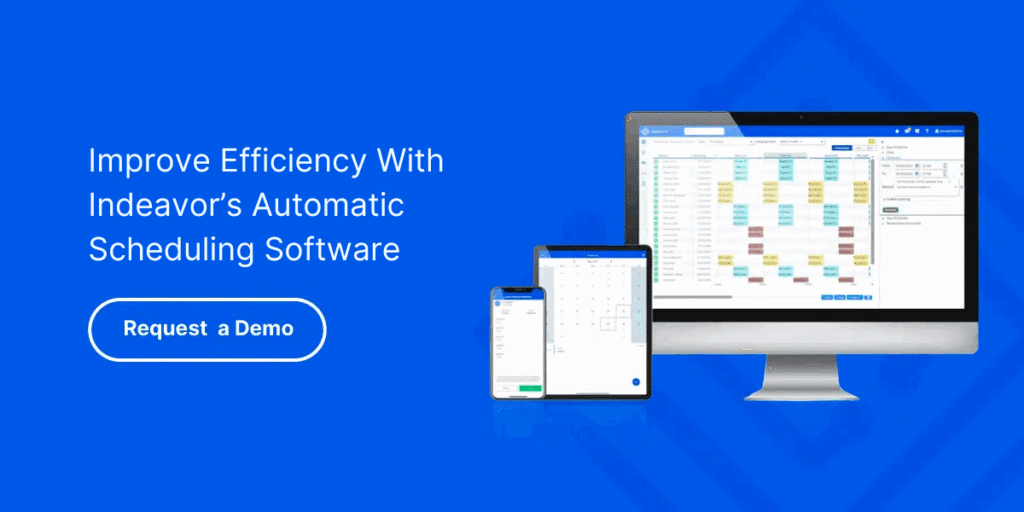As pharmaceutical companies work to deliver life-saving medications at scale, the role of generic drugs has never been more critical. With rising healthcare costs and mounting pressure to increase access globally, generic drug manufacturers are expected to produce at higher volumes, lower costs, and faster speeds, all without sacrificing quality or regulatory compliance.
But meeting that demand takes more than optimized equipment or streamlined logistics. It takes a workforce that’s aligned, agile, and compliant. That’s where workforce management becomes a strategic differentiator.
The Growing Demand for Generic Drugs
So, what are generic drugs? According to the U.S. Food and Drug Administration (FDA), they are medications that are bioequivalent to brand-name drugs in dosage form, safety, strength, and intended use. Because they bypass the costly research and development phases of branded drugs, they offer a more affordable option to patients and healthcare systems alike.
The global appetite for generic drugs is accelerating. As of 2024, the global generic drug market was valued at approximately $439.37 billion and is expected to reach $652.31 billion by 2032, growing at a CAGR of 5.1% from 2024 to 2032, according to Towards Healthcare. This surge is driven by several factors:
- Expiring patents on blockbuster branded medications
- An aging population requiring ongoing pharmaceutical care
- Rising prevalence of chronic conditions
- Cost-containment mandates from governments and insurers
While this presents immense opportunity, it also creates complexity. The production, packaging, and distribution of generic drugs must all scale in a highly regulated environment. An environment where errors can be costly and noncompliance can delay product launches.

Operational Challenges in Generic Drug Manufacturing
As manufacturers expand to meet rising demand, they’re often met with operational friction. The sheer pace and volume required for generic drug production strain legacy systems, especially labor models built on static scheduling or siloed data.
Some common challenges include:
- Compressed Margins: With lower prices than brand-name drugs, generic drugs are produced at thinner profit margins. Efficiency becomes critical.
- Fluctuating Demand: Unexpected surges—often due to drug shortages or newly approved FDA generic drugs—require flexible staffing that can scale up or down.
- Regulatory Complexity: Facilities must comply with stringent labor rules, from rest periods to qualifications, especially under Good Manufacturing Practice (GMP) guidelines.
According to the U.S. Bureau of Labor Statistics, labor costs in manufacturing accounted for roughly 20% of total production costs in 2023. For generic drug producers, where margins are tighter, these labor inefficiencies have an even larger impact.
Workforce Management as a Strategic Lever
In the life sciences space, labor isn’t just an operational input. It’s a quality, safety, and compliance variable. Modern workforce management platforms like Indeavor give pharmaceutical manufacturers the tools to optimize their labor force for cost-efficiency while also ensuring the right people are in the right place at the right time.
Aligning Labor to Production Demand
Effective workforce planning starts with aligning labor supply to fluctuating production demand. Automated scheduling tools can match shift coverage to real-time volume requirements, minimizing both understaffing and overstaffing. For instance:
- When a new generic drug approval accelerates production needs, labor schedules can be adjusted immediately.
- When certain drug lines are paused, associated roles and shifts can be reallocated.
Dynamic workforce management also supports rapid reallocation across functions and facilities. Something increasingly necessary as companies operate multiple plants globally or take on more contract manufacturing.
Ensuring Quality and Compliance
In a tightly regulated industry, compliance is not negotiable. Scheduling the wrong employee, even unintentionally, on a sensitive task can lead to audit failures or product recalls.
Indeavor’s platform enables skills-based scheduling, meaning only qualified, certified personnel are placed in GMP-sensitive roles. The system automatically enforces:
- Fatigue policies and rest period regulations
- Skills and certification validation before shift assignment
- Real-time tracking and auditable logs for every scheduled action
This level of control protects not just product quality but also brand reputation and licensing eligibility. It’s especially crucial when scaling production for high-demand generic drugs.
Unlocking Labor Visibility and Agility
Legacy scheduling systems often fail to provide visibility into labor data across locations. This lack of transparency hinders informed decision-making and slows responses to sudden demand changes.
By contrast, cloud-based workforce management centralizes data and enables visibility across functions and facilities. Plant managers and HR leaders can quickly:
- Identify staffing gaps
- Forecast workforce needs by SKU or product type
- Monitor labor compliance across shifts and geographies
This agility allows organizations to adjust in real time, avoiding delays and maximizing throughput when bringing generic drugs to market.

Workforce Optimization Drives Generic Drug Success
The differences between generic and brand name drugs go beyond formulation or cost. Operationally, generic drugs require faster, more flexible manufacturing backed by airtight compliance. That makes labor a core pillar of execution, not just a cost center.
Workforce management solutions like Indeavor help pharmaceutical companies streamline production, ensure audit-readiness, and scale confidently. As the global demand for generic drugs continues to rise, companies that invest in smarter labor strategies will be best positioned to meet demand, protect margins, and deliver affordable medicine worldwide.
Ready to explore how Indeavor helps life sciences organizations bring generic drugs to market faster and smarter? Schedule a demo with our team to learn more.
About the Author
Claire Pieper is the Digital Marketing Specialist for Indeavor. In her role, she specializes in crafting strategic and engaging content, ensuring that customers are well-informed. Claire is dedicated to enhancing the customer experience and optimizing the user journey through Indeavor’s solutions. To learn more or get in touch, connect with Claire on LinkedIn.



